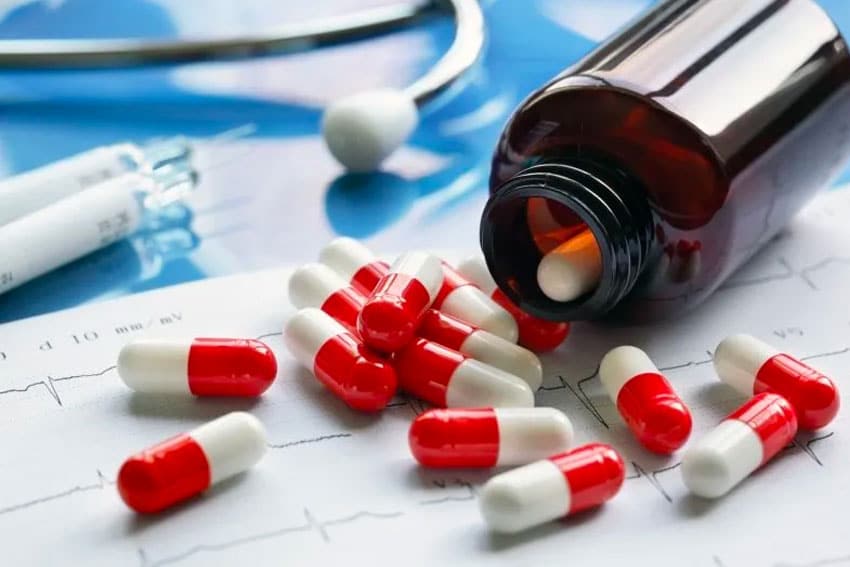Antidepressants Can Affect Your Dental Implant Success

Dental implants have a very high rate of success, but there are many things that can put your implants at risk. That’s why it’s important to fully disclose all medications you are taking, and even whether you are taking any dietary supplements.
For example, new research confirms that antidepressants can increase your risk of dental implant failure.
Failure Four Ways from Sunday
This research comes from a doctor of dental surgery candidate and her professors who noted that many patients who experienced dental implant failure were taking antidepressants. As they began looking at the charts of patients they found that a third of patients who experienced a dental implant failure (33%) were taking antidepressants. Among patients that hadn’t experienced a dental implant failure, only 11% were taking antidepressants.
Statistical analysis confirmed that this was highly significant. In fact, they found that antidepressant use was associated with an average risk of dental implant failure that was four times higher than those who didn’t use antidepressants. They were even able to show that the longer you took antidepressants, the higher your risk.
Of course, correlations are one thing, but if you want to really link a medication and a side effect, you have to demonstrate the mechanism by which the medication causes the side effect. In this case, they had four.
First, antidepressants impact your bone healing. They can even contribute to the development of osteoporosis. Obviously, if your bones can’t heal around your implants, they’re more likely to fail.
Antidepressants can also lead to akathisia, a motor disorder in which people are forced to move constantly, including their jaw. These constant movements could contribute to dental implant failure.
Dental implants are vulnerable to bruxism, jaw clenching and grinding. It’s important to have a healthy bite to reduce pressure on dental implants. Unfortunately, bruxism is a potential side effect of antidepressant use.
Finally, dry mouth is another common side effect of antidepressant use. Without saliva, your mouth is more vulnerable to gum disease, the most common cause of dental implant failure as well as tooth loss.
We might be tempted to dismiss this research by a DDS candidate based on that or because it’s only being presented at a scholarly conference rather than being printed in a scholarly journal. But that would be a mistake, because this finding is supported by previous research that looked into the link between antidepressants and dental implant failures, which found that implant failure risks were 6.28 times higher in people taking antidepressants. In fact, about 11% of dental implants failed in people taking antidepressants. That’s as high as or higher than smoking.
Antidepressants Linked to Problems
In all cases, the potential causes were all linked to a common class of antidepressants known as selective serotonin reuptake inhibitors (SSRIs). This class of antidepressants has grown steadily since its introduction in the late 1970s, and now accounts for most of the market for antidepressants. It includes the brand names Prozac, Paxil, Lexapro, and Zoloft.
SSRIs have been linked to bone loss. This is because they speed the breakdown of bone. SSRIs are also associated with akathisia. However, this isn’t the only class of drugs that can contribute to this side effect. Serotonin and norepinephrine reuptake inhibitors (SNRIs) such as Effexor and Cymbalta are also linked to this side effect, as are tricyclic antidepressants (TCAs) such as Elavil and Norpramin.
Bruxism is mostly associated with SSRIs. For people who are already bruxers, SSRIs are not recommended. People who experience bruxism when taking an SSRI might benefit from switching to an SNRI or TCA.
SSRIs are also linked to dry mouth. This isn’t just a risk to your dental implants, it can increase your risk of cavities and gum disease, too.
In some cases, it’s not clear whether SSRIs are the only antidepressant linked to the side effect or if other antidepressants just haven’t been studied as much. Dry mouth, for example, is a very common side effect of many drugs, and may be linked to other antidepressants as well.
Let’s Work Together for Implant Success
We will do everything we can to insure your dental implants are successful, but we can’t do it alone. You have to do your part. One of the most important things you can do is to tell us what medications you’re taking so that we can try to account for their effects on your bones and your implants.
If you are looking for dental implants in Tulsa, please call (918) 528-3330 for an appointment with an implant dentist at élan Tulsa Cosmetic Dentistry.

élan Tulsa Cosmetic Dentistry
10031 S Yale Ave #104
Tulsa, OK 74137

